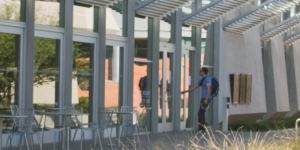The LLM program did not do enough to help me find a job even after I performed successfully. I am not the only student I know who felt this way. I feel they should have and most certainly could have done a lot more than they did. I am very disappointed.
Not recommended
Posted Jul 02, 2013 00:20
Posted Jul 06, 2013 21:52
It is not only AU, it is Yale, Columbia, Berkeley, Georgetown, George Washington, Michigan, UVA, DUKE, NYU. Just because you got an LL.M. from one of these programs, does not mean you will get a job period, not to mention one that you specifically wanted.
That being said, I met and do know people who graduated from AU's LLM program who found work and are at the World Bank, IMF, big firms, back in their countries working for their governments, teaching at universities, while there are AU graduates that did not find jobs. I also met graduates from Georgetown, George Washington, NYU, Duke, UPenn, etc., who, like you, were disappointed in the end because they did not land the job they were hoping for, or any job for that matter.
I think that a lot of LL.M. applicants are naively optimistic that by getting an LL.M. from a reputable school, even top schools like NYU and Harvard, that they will be able to find work no problem. That is a complete misnomer. For jobs in the US, at least, LL.M. students are at the back of the line. J.D. students get dibs on jobs, that is a fact, unless the LL.M. graduate's undergraduate legal education, language skills, previous experience, etc. really makes him/her a star prospect. Generally speaking, JD grads of top American law schools simply get preference, be it for government jobs, law firms, NGOs, non-profits. You may think it is unfair, and in some instances it may very well be, but that is how it goes.
The other issue is the legal job market. It still is relatively weak. It is not the legal job market of the 80s and 90s, when you could graduate from a bottom tier law school, with average grades, and be able to land a legal job within a few months of graduation. There was a glut of work, in the private sector, in the state govt, local govt, in the non-profit sector. Today, the situation is not as bad as it was five years ago, but the legal job market is still pretty weak. Simply put, the supply greatly outweighs the demand, too many candidates for too few jobs. The job market tanked, really, not too long after 9/11, so you have, essentially, a decade of great output of newly minted attorneys without enough jobs to absorb even half of them. You find JD grads from elite schools like Georgetown, Berkeley, George Washington, Emory, USC, UCLA, Washington U, Coumbia etc., doing remedial work like document review, temp work, and non-legal work, just to pay the bills. If a JD from Georgetown, with decent grades, has a hard time finding a job, an LL.M. has zero, zip, zilch chance, unless, as I said, there is a very specific job looking for someone that is fluent in X,Y, &Z languages with such and such experience, and you just happen to meet all the criteria. Job wise, at least in the US, LL.M. students are not the ones filling up the interview schedules during on-campus interviews, the ones being considered for positions at USAID, US Int'l Trade Commission, etc.
As for career services, they are a total joke at, pretty much, any university. If you think that career services at Harvard will find you a job, then I have a 5 bdrm flat in Chelsea that I can sell you for a very good price. Again, I think that is a misnomer that students fall for. Career services at most schools organize on on-campus interviews, which are mostly geared towards JD students only, and mostly JD students who are in the top 15%. Everyone else is pretty much on their own, as far as finding work is concerned.
Just to echo Voice of Reason, virtually all LL.M. programs are cash cows. As for the benefit to the student, it is, I would argue, relatively minimal. It will only help, minimally, if you have two identical candidates on paper, and one happens to have the extra LL.M.
The other, and more beneficial, aspect of being an LL.M. student is, that is also gives you the opportunity to network, and it is a lot easier to network, apply for internships and externships/volunteer positions, as a student, rather than as a graduate. For some reason, people are more sympathetic, more open to giving opportunities, to someone that is still a student rather than someone that has been out of school for a while. I know some AU LL.M. grads from DC that found their initial jobs, while in the program, through networking events, internships, volunteer positions, and by reaching out to practitioners at places like OAS, IMF, World Bank, CEELI, and other non-profits focusing on everything from human trafficking to environmental issues. DC is great for that. There are plenty of organizations that will take you on as a volunteer, and that volunteer position can turn into a job or can allow you to make contacts in that field, in other organizations, that could eventually lead to a job. When I lived in DC, occasionally, I used to go to Georgetown, George Washington, AU, for their programs. They would bring some really fascinating people to speak sometimes and afterwards you could chat with them, exchange business cards.
Because the job market is so tough, you have to be a lot more proactive and persistent about finding work. No one is going to find it for you, not the school, not the career services, no guidance counselors, and it is that much more difficult or LL.M. students, for the reasons mentioned above. It is easy to blame the school, and most people do, but you have to remember that the school is not there to find you a job. It is there to offer coursework, to issue a degree if one satisfies the requisite coursework requirement for a degree, and to offer some resources for the students, but it will not find you work, and just because you have a Harvard degree does not mean that the employers will be knocking down the door to give you offers. That being said, I am not unsympathetic to your situation. I realize it is not easy, and can see how one can be disappointed. Keep your chin up.
That being said, I met and do know people who graduated from AU's LLM program who found work and are at the World Bank, IMF, big firms, back in their countries working for their governments, teaching at universities, while there are AU graduates that did not find jobs. I also met graduates from Georgetown, George Washington, NYU, Duke, UPenn, etc., who, like you, were disappointed in the end because they did not land the job they were hoping for, or any job for that matter.
I think that a lot of LL.M. applicants are naively optimistic that by getting an LL.M. from a reputable school, even top schools like NYU and Harvard, that they will be able to find work no problem. That is a complete misnomer. For jobs in the US, at least, LL.M. students are at the back of the line. J.D. students get dibs on jobs, that is a fact, unless the LL.M. graduate's undergraduate legal education, language skills, previous experience, etc. really makes him/her a star prospect. Generally speaking, JD grads of top American law schools simply get preference, be it for government jobs, law firms, NGOs, non-profits. You may think it is unfair, and in some instances it may very well be, but that is how it goes.
The other issue is the legal job market. It still is relatively weak. It is not the legal job market of the 80s and 90s, when you could graduate from a bottom tier law school, with average grades, and be able to land a legal job within a few months of graduation. There was a glut of work, in the private sector, in the state govt, local govt, in the non-profit sector. Today, the situation is not as bad as it was five years ago, but the legal job market is still pretty weak. Simply put, the supply greatly outweighs the demand, too many candidates for too few jobs. The job market tanked, really, not too long after 9/11, so you have, essentially, a decade of great output of newly minted attorneys without enough jobs to absorb even half of them. You find JD grads from elite schools like Georgetown, Berkeley, George Washington, Emory, USC, UCLA, Washington U, Coumbia etc., doing remedial work like document review, temp work, and non-legal work, just to pay the bills. If a JD from Georgetown, with decent grades, has a hard time finding a job, an LL.M. has zero, zip, zilch chance, unless, as I said, there is a very specific job looking for someone that is fluent in X,Y, &Z languages with such and such experience, and you just happen to meet all the criteria. Job wise, at least in the US, LL.M. students are not the ones filling up the interview schedules during on-campus interviews, the ones being considered for positions at USAID, US Int'l Trade Commission, etc.
As for career services, they are a total joke at, pretty much, any university. If you think that career services at Harvard will find you a job, then I have a 5 bdrm flat in Chelsea that I can sell you for a very good price. Again, I think that is a misnomer that students fall for. Career services at most schools organize on on-campus interviews, which are mostly geared towards JD students only, and mostly JD students who are in the top 15%. Everyone else is pretty much on their own, as far as finding work is concerned.
Just to echo Voice of Reason, virtually all LL.M. programs are cash cows. As for the benefit to the student, it is, I would argue, relatively minimal. It will only help, minimally, if you have two identical candidates on paper, and one happens to have the extra LL.M.
The other, and more beneficial, aspect of being an LL.M. student is, that is also gives you the opportunity to network, and it is a lot easier to network, apply for internships and externships/volunteer positions, as a student, rather than as a graduate. For some reason, people are more sympathetic, more open to giving opportunities, to someone that is still a student rather than someone that has been out of school for a while. I know some AU LL.M. grads from DC that found their initial jobs, while in the program, through networking events, internships, volunteer positions, and by reaching out to practitioners at places like OAS, IMF, World Bank, CEELI, and other non-profits focusing on everything from human trafficking to environmental issues. DC is great for that. There are plenty of organizations that will take you on as a volunteer, and that volunteer position can turn into a job or can allow you to make contacts in that field, in other organizations, that could eventually lead to a job. When I lived in DC, occasionally, I used to go to Georgetown, George Washington, AU, for their programs. They would bring some really fascinating people to speak sometimes and afterwards you could chat with them, exchange business cards.
Because the job market is so tough, you have to be a lot more proactive and persistent about finding work. No one is going to find it for you, not the school, not the career services, no guidance counselors, and it is that much more difficult or LL.M. students, for the reasons mentioned above. It is easy to blame the school, and most people do, but you have to remember that the school is not there to find you a job. It is there to offer coursework, to issue a degree if one satisfies the requisite coursework requirement for a degree, and to offer some resources for the students, but it will not find you work, and just because you have a Harvard degree does not mean that the employers will be knocking down the door to give you offers. That being said, I am not unsympathetic to your situation. I realize it is not easy, and can see how one can be disappointed. Keep your chin up.
Hot Discussions
-
Cambridge LL.M. Applicants 2024-2025
Oct 30, 2024 142,279 544 -
Georgetown LLM 2024/2025 applicants
Nov 16 09:22 PM 40,077 209 -
NUS LLM 2024-25 Cohort
Oct 25, 2024 5,855 34 -
NUS LLM cohort 2025/26
Nov 17 05:40 PM 465 5 -
LL.M. Scholarship Rates?
Nov 09, 2024 2,502 5 -
EU citizen barred in the US -- will an LLM from an EU school help me practice law somewhere in the EU?
Nov 15 12:58 AM 135 4 -
NUS vs Peking
Nov 09, 2024 181 4 -
LLM in Germany 2024
Nov 09, 2024 820 4



